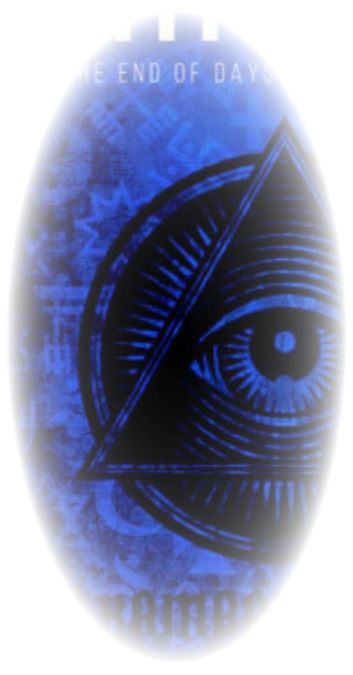New Releases
New Titles Coming Soon In 2024/2025

Available From:
Amazon | Blackewells | Foyles | Waterstones
| WHSmith | Wordery | LuLu
Also, Available At All Other Bookstores
IN THENAME OF GOD, THE MOST GRACIOUS, THE MOST MERCIFULL.
Publisher Details:
Troubador Publishing Ltd
9 Priory Business Park
Wistow Road
Kibworth Beauchamp
Leicester
LE8 0RX
Author Contact:
enquiries@kamranfaqir.com
www.kamranfaqir.com
THE
GUARDIANS
CHAPTER ONE - ROHAAN -
THE BEGINNINGS OF A
LEGEND.
COMING
SOON!
THE
SUPERNATURAL
INTERDIMENSIONAL
BEINGS & KHIDR
BOOK 2: THE END OF DAYS SERIES
COMING
SOON!
Book Sypnosis
Throughout history, explorers, scientists, adventurists, archaeologists set out to discover the mystical island of Atlantis, "island of Atlas")
is believed to be a fictional island mentioned in an allegory on the hubris of nations in Plato's works Timaeus and Critias. It represents the
antagonist naval power that besieges "Ancient Athens", the pseudo-historic embodiment of Plato's ideal state in The Republic.
Despite its minor importance in Plato's work, the Atlantis story has considerably impacted literature. The allegorical aspect of Atlantis was
taken up in utopian works of several Renaissance writers, such as Francis Bacon's New Atlantis and Thomas More's Utopia.
On the other hand, nineteenth-century amateur scholars misinterpreted Plato's narrative as a historical tradition, most famously Ignatius L.
Donnelly in his Atlantis: The Antediluvian World. Plato's vague indications of the time of the events (more than 9,000 years before his
time) and the alleged location of Atlantis ("beyond the Pillars of Hercules") gave rise to much pseudoscientific speculation. Consequently,
Atlantis has become a byword for all supposed advanced prehistoric lost civilisations and inspires contemporary fiction, from comic books
to films.
While present-day philologists and classicists agree on the story's fictional character, there is still debate on what served as its inspiration.
Plato is known to have freely borrowed some of his allegories and metaphors from older traditions, as he did, for instance, with the story of
Gyges. This led a number of scholars to investigate possible inspiration of Atlantis from Egyptian records of the Thera eruption, the Sea
Peoples invasion, or the Trojan War. Others have rejected this chain of tradition as implausible and insist that Plato created an entirely
fictional account, drawing loose inspiration from contemporary events such as Sicily's failed Athenian invasion in 415–413 B.C. or the
destruction of Helike in 373 B.C.
“But afterwards there occurred violent earthquakes and floods; and in a single day and night of misfortune all your warlike men in a body
sank into the earth, and the island of Atlantis in like manner disappeared in the depths of the sea.” –
[Plato, Timaeus and Critias]

Available Titles



OUT
NOW
IN THENAME OF GOD, THE MOST GRACIOUS, THE MOST MERCIFULL.

Available From:
New Releases

BOOK SYPNOSIS
Title: The Rise Of The Antichrist - The End Of Days Series Book One
This study investigates the effects of philosophy, religion, politics, science and technology
on the human psyche, especially concerning the youth today. This book investigates the
much-debated topic of the antichrist regarding his emergence and whether he will lead
humanity into darkness or to enlightenment. All mainstream religions, Islam, Christianity,
Judaism, share similar perspectives regarding the antichrist and his developing systems,
that have been foretold by all prophets or messengers sent to every nation over time.
Although modern science and human history refer to the last 5,000 to the last 15,000 years
of development, in reality, there are signs and evidence that human development is much
older, with possibilities of supernatural our otherworldly intervention. For example, the story
of nimrod who researched into longevity and occultist magic. With a strong possibility of
alien or supernatural influence is captured on stone glyphs. Who also proclaimed himself
to be a God-King. Also, throughout history, there has developed empires whose kings
proclaimed to be interdimensional beings and self-proclaimed gods
New Titles Coming Soon In 2024/2025
Publisher Details:
Troubador Publishing Ltd
9 Priory Business Park
Wistow Road
Kibworth Beauchamp
Leicester
LE8 0RX
Author Contact:
enquiries@kamranfaqir.com
Amazon | Blackewells | Foyles | Waterstones
| WHSmith | Wordery |
Also, Available At All Other Bookstores

THE
GUARDIANS
CHAPTER ONE - ROHAAN -
THE BEGINNINGS OF A
LEGEND.
COMING
SOON!
THE
SUPERNATURAL
INTERDIMENSIONAL
BEINGS & KHIDR
BOOK 2: THE END OF DAYS SERIES
COMING
SOON!

BOOK SYPNOSIS
Title: Atlantis - The Lost Empire Throughout history, explorers, scientists, adventurists, archaeologists set out to discover the mystical island of Atlantis, "island of Atlas") is believed to be a fictional island mentioned in an allegory on the hubris of nations in Plato's works Timaeus and Critias. It represents the antagonist naval power that besieges "Ancient Athens", the pseudo-historic embodiment of Plato's ideal state in The Republic. Despite its minor importance in Plato's work, the Atlantis story has considerably impacted literature. The allegorical aspect of Atlantis was taken up in utopian works of several Renaissance writers, such as Francis Bacon's New Atlantis and Thomas More's Utopia. On the other hand, nineteenth-century amateur scholars misinterpreted Plato's narrative as a historical tradition, most famously Ignatius L. Donnelly in his Atlantis: The Antediluvian World. Plato's vague indications of the time of the events (more than 9,000 years before his time) and the alleged location of Atlantis ("beyond the Pillars of Hercules") gave rise to much pseudoscientific speculation. Consequently, Atlantis has become a byword for all supposed advanced prehistoric lost civilisations and inspires contemporary fiction, from comic books to films. While present-day philologists and classicists agree on the story's fictional character, there is still debate on what served as its inspiration. Plato is known to have freely borrowed some of his allegories and metaphors from older traditions, as he did, for instance, with the story of Gyges. This led a number of scholars to investigate possible inspiration of Atlantis from Egyptian records of the Thera eruption, the Sea Peoples invasion, or the Trojan War. Others have rejected this chain of tradition as implausible and insist that Plato created an entirely fictional account, drawing loose inspiration from contemporary events such as Sicily's failed Athenian invasion in 415–413 B.C. or the destruction of Helike in 373 B.C. “But afterwards there occurred violent earthquakes and floods; and in a single day and night of misfortune all your warlike men in a body sank into the earth, and the island of Atlantis in like manner disappeared in the depths of the sea.” – [Plato, Timaeus and Critias]

OUT
NOW








































